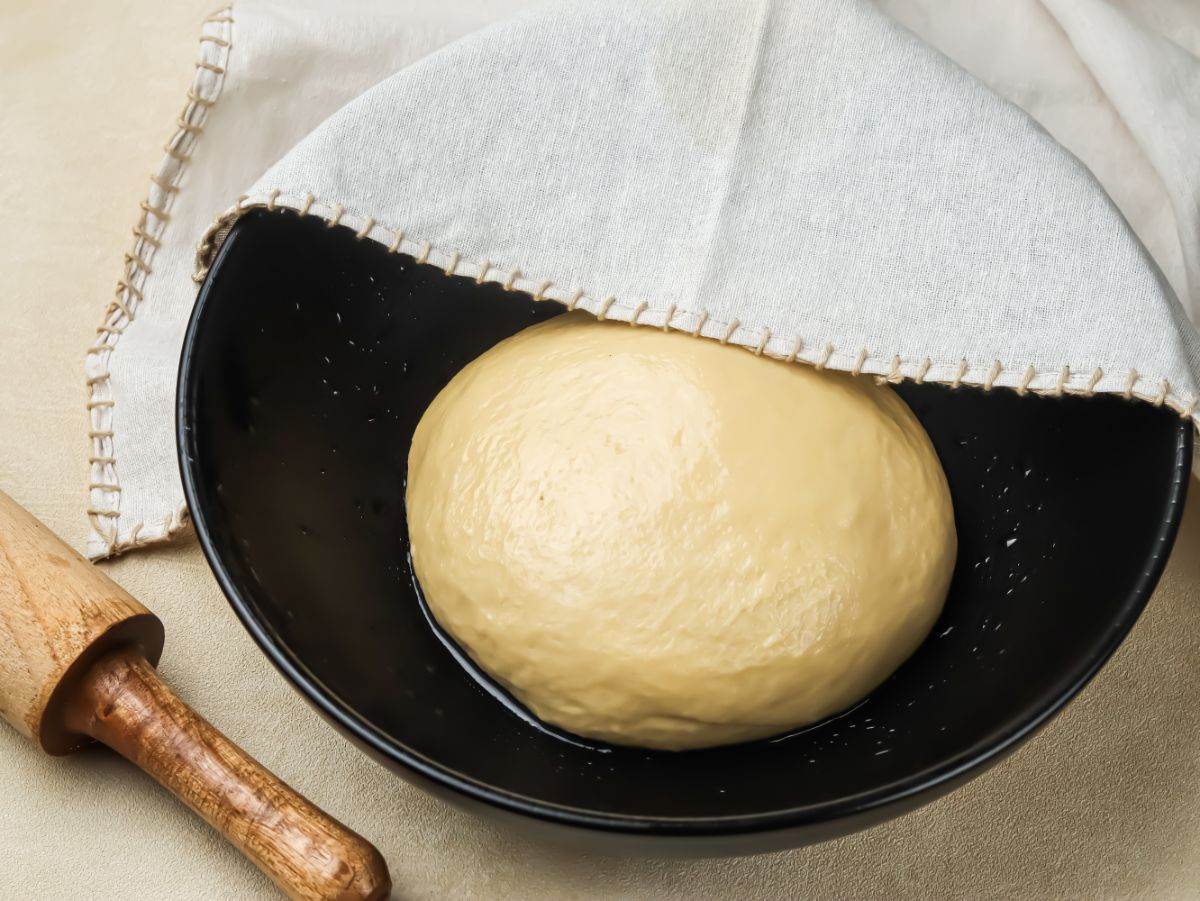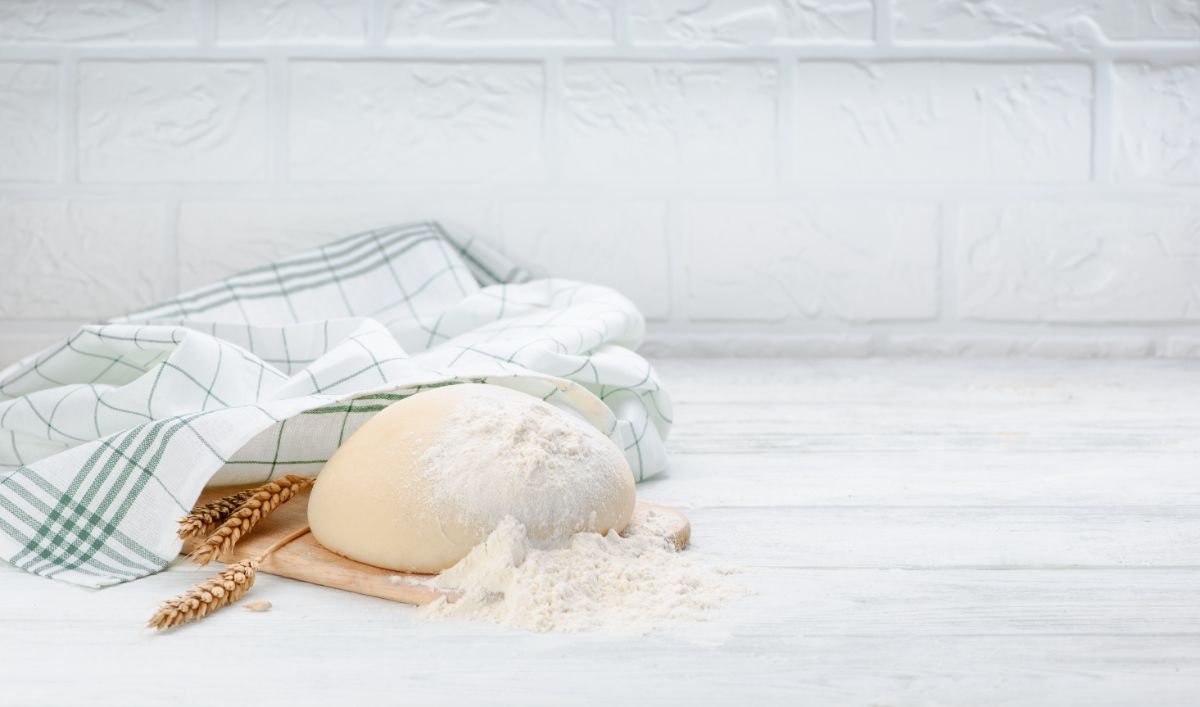Bread dough is something you achieve due to a slight fermentation process. In other words, the future loaf of bread grows because fermentation takes place, growing and making the dough puffy and soft. This is why you have to leave the dough to rest after kneading it properly.

But, this doesn’t mean that you can leave the bread dough to rest for indefinite periods of time. Also, even if the dough is ready, it would not be best to save it in the fridge, for later during the week. While the cool temperatures inside the fridge will stop the fermentation process, the quality of the future loaf of bread can be compromised.
Is it okay to leave the dough to rest overnight?
The answer to this question depends on quite a few factors. When making bread, it is well known that leaving it to grow in a bowl, covered with a clean towel, for approximately half an hour will suffice.
Of course, nothing bad will happen if the dough will enjoy more time for resting, like a couple of hours.
However, when it comes to leaving it in a bowl at room temperature for the entire night, the result may not be a beautifully developed dough.
What you will find in the morning may not be what you desire. But, what if you forget the dough this way and go to bed, only to realize in the morning what just happened?
Well, the result depends on the ingredients used for the making of the dough and the temperature of the room.
Ideally, dough that is left at room temperature overnight should not contain any kind of milk or milk-derived products in its composition. If the dough has them, the chances for it to go bad overnight at room temperature are very high.
How room temperature affects the bread dough for extended periods
If we are talking about the typical bread dough, the regular one everyone is making, allowing it to rise from an hour to two hours at room temperature usually does the trick.
This dough contains flour, yeast, water, and a bit of oil, in its basic form. Once it has been kneaded and left to rise, it usually doubles its shape during this period.

But, in case the rise duration is increased to 12 hours, as when happens if you leave it overnight, the dough will start to deflate once it reaches its maximum.
Of course, it will still be leavened, although its flavor and smell may be slightly modified, especially if it is warm where you left the dough to rise.
In case you cannot bake your bread dough after it has risen or you’re not in the mood to wait one or two hours in order to bake it, you can leave it overnight in the fridge.
Because temperatures are lower in the fridge, the rising process of the dough will happen at a slower rate. In the morning, the result will be similar to the one of dough left to rise at room temperature for two hours.
The best part about keeping the dough in the fridge is that the extended fermentation period will not alter its taste and smell.
If milk or dairy products are ingredients for the dough, it can easily go bad quickly
Bread dough that doesn’t contain any milk or dairy products can be left at room temperature to rise overnight, without any risks involved.
However, if the dough contains milk, yogurt, or sour cream, leaving it at room temperature even for several hours can make the dough go bad. This is due to the fact that these types of ingredients speed up the fermentation process and go bad by themselves if left in warm temperatures for too long.
If you don’t have time to prepare this dough with milk or dairy products in its composition, it would be best to store it in the fridge.
The recommended temperature for storage is 40 degrees Fahrenheit. At this temperature, you can rest reassured that nothing bad will happen to your dough overnight.
Refrigeration will keep flavor and texture almost unchanged
As mentioned earlier, the flavor and texture of the bread dough barely change when it is stored in the fridge overnight. This is due to the fact that fermentation takes place at slower rates and it is harder for the dough to go spoiled.
But, if you leave it on the countertop for the same period, you will notice that the dough developed a slightly sour taste. Again, this is due to the prolonged fermentation period.
Concerning the texture, it could be harder, so when kneaded to prepare the loaf for baking, it may not rise as much as it would normally under regular circumstances.
Also, you should expect the shape to be changed as well. Allowing the dough to rise for too long will create a lot of bubbles on the inside, which will break and make the bread collapse when baked in the oven. Thus, the final bread loaf may look rather deflated.
Bread dough can go bad if left to rise or stored in the fridge for too long
The conclusion is that bread dough left overnight at room temperature will develop a slightly sour taste and will lose a part of its puffiness.
There are some recipes that require this, but if you like a regular loaf of bread, you need to see if you like the change in flavor. But, it is worth knowing that not even keeping the dough in the fridge will save it from going bad within several days.
Bread dough must be baked in a rather short period from its making and it is not recommended to store it in any way. Because it resulted with the help of fermentation, it will go bad if the fermentation process is allowed to take place for too long.
Final Word
So, yes, bread dough will go bad, especially when the temperature is warm. Fridge storing will slow down the fermentation, but the dough should be prepared the next day in the morning.
